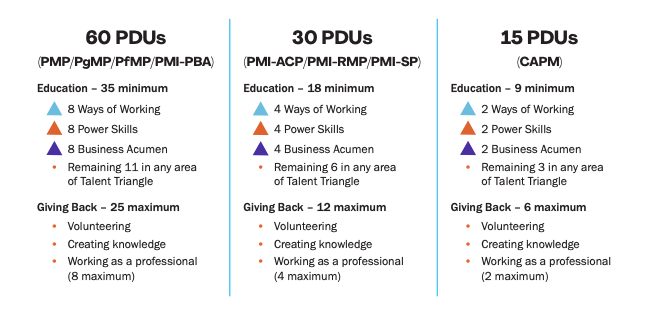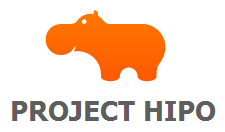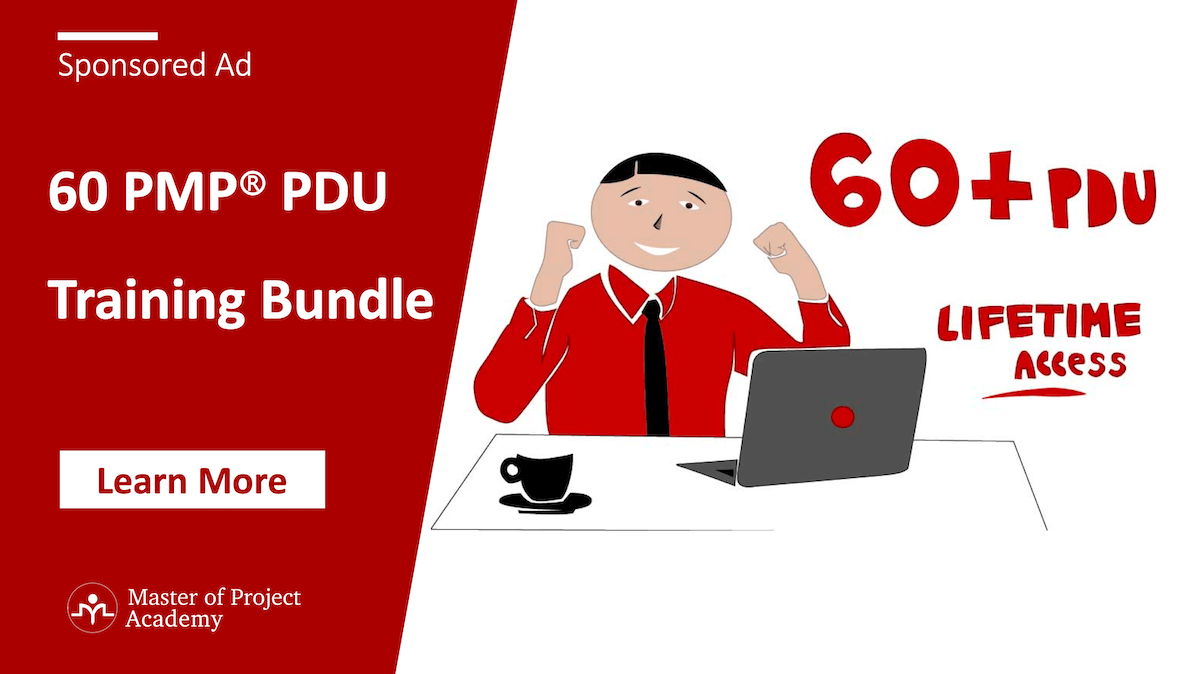If you have a PMP certification or any other PMI certification, you might be looking for a way to acquire the required PDUs to renew your credentials. Are you wondering about how you are going to renew credentials? So continue to read the article and learn everything you need to know about PMP PDU.
The Project Management Institute (PMI) follows a very strict methodology for assessing its credentials holders’ eligibility to hold those credentials. It starts by putting forward a set of requirements for the certification acquisition, at the same time they bound the certifications to a limited time period. So they require the certificate holders to obtain PDUs for the PMP renewal of their credentials. Hence the certificate holder has to work towards obtaining these PDUs which varies from one certificate to another. Otherwise, the certificate holder has to re-certify and retake the certification exam.
PMP Certification Requirements
Let’s give you a more clear view. Let’s assume that you are applying to the PMP exam, then you have to have three main PMP eligibility requirements. The first requirement is education. A PMP applicant is required to have a minimum secondary degree which includes high- school diploma or associate’s degree or a global equivalent.
At the same time, the PMP applicant must have sufficient working experience in the projects. To satisfy this condition a PMP applicant with a high school degree has to have a minimum of 7,500 hours in leading and directing projects. Alternatively, a four-year degree holder only needs to satisfy a minimum of 4,500 hours in leading and directing projects.
Finally, the PMP exam seeker has to attend 35 contact hours of project management education which covers all outlines of the PMP exam. But don’t forget that, a CAPM certification holder is exempted from the last condition. When the PMP applicants pass the exam successfully and obtain their PMP certification, they would need to maintain this certificate through obtaining PMP PDU as they have to renew this credential every 3 years. This PMP PDU collection is bound to the time limit of three years where the PMP holder must collect 60 PDUs.
What is PMP PDU?
So here comes a number of questions that would normally come to your mind when you read the introduction. What exactly is a PMP PDU? What is the difference between PMP PDU and Contact Hours?
So what is PMP PDU?
To explain the PDUs we can put it this way, PDU is an abbreviation of Professional Development Units. Professional Development is a measure that PMI uses to quantify professional services and activities to maintain PMI Credentials as well as the approved learning activities.
PMI considers the worth of one-hour of instructional PMP training related to project management equates to 1 PDU. This also applies to program management, Agile project management or even project scheduling. You can report a PMP PDU or Professional Development Unit partially. This means you can report 0.25, 0.50 and 0.75 increments of a PDU. We will give more details about PMP PDU and its breakdown in relation to the talent triangle later in the article.
What is PMP contact hours?
Now let’s go through the PMP contact hours. PMP PDU can be education-related as well as professional work-related. While this case applies to PMP PDU, it does not apply to contact hours. Since PMP contact hours are basically project management training hours that must satisfy certain criteria so PMP contact hours must cover the PMP exam outline. At the same time, unlike PMP PDU, PMP contact hours have to be focused on project management knowledge. Also, PMP contact hours don’t count professional context or delivering training, but only receiving PMP training.
The major differences between PMP PDU and PMP contact hours
Last but not least is the difference of purpose between PMP PDU and PMP contact hours. Mainly, contact hours are one of PMP eligibility requirements, as you need them to satisfy the PMP exam requirements. On the other hand, PMP PDU is a requirement for renewing PMP certification after passing the exam successfully. Also, there is a very significant distinctive difference between PMP PDU and PMP contact hours. This difference is that to obtain PMP contact hours you need to go through formal outlined PMP training. On the other hand, you can obtain a PMP PDU through self-study without a specific formal outline.

What are the PMP PDU Requirements?
As we explained in the above section, Professional Development Unit or PMP PDU is worth one hour of time that you spend learning or studying. Also, you can obtain PMP PDU through teaching project management related topics to others or even volunteering in project management related work. To satisfy the requirements of PMP renewal you need to track and accumulate your PMP PDU over the three-year period. Thus, you can maintain your PMP certification status with the Project Management Institute. PMI’s certification maintenance requirements for their certificates vary one to another in terms of the number of PDUs. But in all cases, PMP holder has to collect PMP PDU within a three-year maintenance and renewal cycle. So the following applies to PMP PDU as well as to any other PMI certification’s PDU.
As we mentioned above, one hour of instructional training related to project management is equal to 1 PMP PDU and this also applies to program management, agile project management or even project scheduling. PMI PDUs have two categories Education and Giving Back to the Profession.
PMP PDU Education Requirements
The first category is Education. You can earn an Education PDU by attending webinars or professional seminars as well as attending training in-classroom courses or even get self-paced PMP courses. The options within this category are wide and various. We will discuss different ways of earning PMP PDU from the education category and explore different options in the coming sections.
PMP PDU Giving Back Requirements
The second category of PMP PDU is Giving Back PDUs. A PMP holder can obtain by spending time doing voluntary work as well as performing mentoring activities in addition to working with professional groups. Also, a PMP holder can obtain PMP Giving Back PDUs through other similar activities. We will state different ways of earning PMP PDU from the Giving Back category further in the article.
PMI Continuing Certification Requirements Program
- First, to enhance the certification holders’ continuous learning as well as their development.
- Second, to provide clear direction for development areas ensuring the relevancy of certified practitioners.
- The third purpose is recognizing and encouraging learning opportunities.
- Another purpose is to provide a mechanism for recording activities related to professional development.
- And finally, sustaining the value of PMI certifications and their relative global recognition.
PMP PDU and Talent Triangle
- Ways of Working,
- Business Acumen
- Power Skills
CCR requirements are different for each PMI certification
PDU requirements for PMP, PgMP, PMI-PBA, and PfMP
PMP PDU requirement for certification holders is to collect 60 PDUs through a maximum of 25 Giving Back PDUs and a minimum of 35 Education PDUs. The 35 Education PDUs also has another limitation of reporting at least 8 Ways of Working project management PDUs as well as limitation of reporting at least 8 Business Acumen PDUs and also a limitation of reporting at least 8 Power Skills PDUs. At the same time, reporting a maximum of 8 PDUs for working as a professional / practitioner of the giving back PDU category.
The same concept applies to PgMP PDU requirements for certification holders to collect 60 PDUs through a maximum of 25 Giving Back PDUs and a minimum of 35 Education PDUs. With the same distribution of education PDUs across talent triangle minimum of 8 Power Skills PDUs, 8 Ways of Working PM PDUs, and 8 Business management PDUs. As well as the limit of reporting a maximum of 8 PDUs for working as a professional / practitioner of the giving back PDU category. This also applies to PfMP and PMI-PBA certifications holders.
PDU requirements for PMI-ACP, PMI-RMP, PMI-SP
While the renewal cycle stays the same, these certifications have different requirements for maintenance PDUs. PMI only requires 30 PDUs to maintain PMI-ACP, PMI-RMP, PMI-SP certifications instead of 60 PDUs. The PDUs distribution is the same for all of these certifications across both education and giving back to profession categories. Accordingly, PMI requires certification holders to report a maximum of 12 Giving Back PDUs and a minimum of 18 Education PDUs. The distribution of education PDUs between talent triangle skills is a minimum of 4 Power Skills PDUs as well as a minimum of 4 Ways of Working PM PDUs and a minimum of 4 Business Acumen PDUs. While setting a limit of a maximum of 4 PDUs for reporting working as a professional / practitioner of the giving back PDU category.
How can I earn PMP PDU to Renew PMP certification?
Since the Continuing Certification Requirements Program’s main objective is to ensure the continuous development of the certification holder. So PMI Certification renewal offers a learning opportunity for certification holders to obtain the latest skills that help them advance in their professional life. At the same time, they benefit from networking with other fellow professionals, as well as share knowledge and perform voluntary activities.
As we discussed before, there are two categories of professional development units that a certification holder can obtain for renewal requirements. These two types are Education and Giving Back to the Profession. Each one of those two categories includes a vast number of options while the certification holder is bound to satisfy some requirements that we detailed earlier. The certification holder can report the remaining PMP PDU through any of the other available options.

Ways to Collect Education PMP PDU
As we mentioned earlier there are numerous ways to obtain and report PMP PDU. Across all categories, one hour of learning equals 1 PMP PDU.
Course or Training
The first way you can earn PMP PDU is through training courses. Yes, normal training courses will be counted, as long as these courses are related to the earlier mentioned topics. These courses include formal Instructor-led training courses whether it is held in class or held in person or online.
Do you attend PMI’s face-to-face and instructor-led courses or seminars? If the answer is yes, then congratulations! You can report every hour you spent as one PMP PDU. On the other hand, if you don’t, then don’t worry, now you know an easy way of earning PMP PDUs.
Another option you can take is attending On-Demand e-learning courses. Self-paced learning is growing so fast due to its convenience. You can use such an option to earn your PMP PDU without the need to bound yourself with a trip to a training class. There are also Academic Education Programs accredited by PMI Global Accreditation Center as well as PMI Registered Education Provider (R.E.P.) training courses. Finally, PMI accepts any other third party training provider that offers relevant training courses. Does it get more simple than this? Any training you attend from any provider counts, as long it covers related topics.
But that is not all, the following options are even easier and more simple.
Organization Meetings
If you attend a meeting, event or even an activity related to the project management profession, you can earn PMP PDU. Even though it is limited to 1 to 2 PDUs, you can still use it as one of your ways to collect PMP PDU. Also, this option is not limited to PMI specific events or activities, but they are easier to report. To earn PMP PDU from this option, you can easily view the PMI events calendar or check with the nearest PMI chapter.
Reading
So if you thought the previous option was the easiest way to earn PMP PDU, let me tell you that you are wrong. PMI also accepts self-directed learning including reading books, material or even relevant articles. Also, PMI accepts Podcasts and other material that offers similar content as PMP PDU.
Informal Learning
Finally, if you were mentored, guided, instructed, or even went into the discussion over a project management related topic you can also report this as PMP PDU. This includes your typical professional discussions with your work colleagues over-improving your PMO practices.
Ways to earn Giving Back to the Profession PMP PDU
Moving forward to the next category, Giving Back to the Profession. A unique opportunity to expand the knowledge as well as the skills and at the same time growing personally as well as professionally. Giving Back to the Profession offers a roadmap for certification holders to grow steadily in line with the dynamics of today’s business environment. Despite the fact that PMI does not require it for renewal, still, it is an excellent way for expanding your skill horizons.
Usually, you would think it is all about working as a professional or a practitioner and this is where you are wrong. Although working as a professional is one of the major ways of earning Giving Back to the Profession PMP PDU it is not the only one. The following list illustrates the possible options to earn your PMP PDU through the Giving Back category.
Work as a professional / practitioner
The obvious one of them all, working as a professional / practitioner. By applying the knowledge and set of skills in a project management role within a practical setting, you can earn up to 8 PMP PDU per cycle. Also, these PMP PDU has to be reported once per the three years cycle, and you can not transfer extras to the next cycle.

Create Content
Do you develop content knowledge resources for the use of other practitioners to share your knowledge and expertise? If the answer is yes, then you can earn one PMP PDU per the number of hours you spent creating this content. This includes writing articles or books or even blogs, creating webinars or presentations. This also applies to develop content for PMI associated websites.
Give a Presentation
Now that’s a clear one. If you give a formal presentation to share knowledge related to PMP certification to others you can also claim one PMP PDU for each hour you spent.
Share Knowledge
It is similar to the education category’s informal learning. If you were at the other end of the mentoring table, i.e. you are the mentor you also get to claim PMP PDU. This means that you can report 1 PMP PDU per each mentoring hour. This does not only include mentoring, but it also includes teaching or instructing others as well as applying subject matter knowledge to an activity that others will benefit from through your perspective of experience.
Volunteer
Now we come to the final option for you to earn PMP PDU. This can be achieved by providing your volunteer services to an organization that is not your employer or a client. You can do this as a part of the PMI community of volunteers who support the Institute and the profession in a variant ranges of roles. For volunteering to count it has to be within the related domains and services of nonprofit organizations. Accordingly, a one-hour volunteering service is equal to 1 PMP PDU.
Important PMP PDU notes
Since we described all available options to earn different types of PMP PDU, we are going to highlight some important policies and notes related to PDUs. These policies will act as a guideline to you while reporting your PDUs in order to avoid ending up reporting wrong PDUs.
PDUs are subjected to audits
Similar to PMP exam eligibility requirements, PMI subjects PMP PDU to PMI audits. This means that you might be selected for an audit upon renewal. If PMI selects your PMP PDUs for PDU audit you need to know before reporting any PMP PDU that you might be asked for its evidence. The PDU evidence varies from one PDU to another according to the type and nature of the reported PDU. So be careful not to report fake PMP PDU or submitting a PDU that you can not prove.
Only report PDUs relevant to the period after being certified
If you had a number of activities you completed before you earn your PMI PMP certification, do not report them as PMP PDUs. PMI only considers activities as PDUs in which you are involved after you are PMP certified. All activities before that are not eligible as PDUs.
You only claim activity participation once
It may seem obvious, but we have seen worse. It is a big NO for trying to claim PDUs more than once for the same activity or course participation. Be careful PMI may take this with serious actions.
Some PDUs may carry over to the next three years cycle
If you earn more PDU than the required number for the three years cycle, you can carry over a portion of them to the next cycle. This comes with a restriction that you can only carry over PMP PDU earned in the last 12 months of the certification cycle. The number of PDUs you can carry over varies from one certificate to another. For PMP certification, you can carry over up to 20 PDUs. The same applies to PgMP, PfMP, and PMI- PBA. On the other hand, PMI -ACP, PMI -RMP, and PMI -SP can only carry over 10 PDUs.
Working as a practitioner does not carry over
The carryover rule does not apply to “working as a professional or practitioner” category anymore. This means that regardless of the timing of earning working as a professional or practitioner PMP PDUs, you can not report them in the future cycle even if they occur in the last 12 months of the current cycle. This restriction only applies to this type of activity. Meanwhile, the other giving back to profession activities treated with the same way education activities. They can carry over if they occur in the last 12 months of the current cycle to the next cycle. This means that you can report them in the future cycle normally. Be aware of this exception so you don’t fall a victim of such a rare rule if PMI selects your PDUs for audit!
Same PDUs can Maintain Multiple PMI Certifications
This is one of the great bonuses PMI offers its certification holders. If you hold more than one certification you can use the same PDU to maintain all your held certifications. This applies in different ways between different PDU categories. As a result, Education PDUs which fall under the Power Skills type can be applied to all certifications at the same time. For example, if you attend a 2 hours webinar about Power Skills, and you use it for PMP and PMI -ACP certifications. In that case, you can report 2 PMP PDU and at the same time apply the same 2 hours to PMI -ACP PDUs. The same concept applies to Business Acumen PDUs. The logic behind this merit is that Business Acumen as well as Power Skills concepts are wide educational topics and not bound to one specific certification.
On the other hand, the same concept can not be applied to Ways of Working. The reason behind this is that Ways of Working knowledge is specific to the certification knowledge domain. Thus only PMP and may be PgMP can fully benefit from all Ways of Working PDUs. While other certificates will only benefit from the relevant Ways of Working PDUs.
Alternatively, Giving Back to the Profession PDUs can apply to all certifications since practical experience and its associated activities are more broadly applicable to all certifications.

Certification Status
If you don’t track your certification status regularly, you might hit unexpected status unknown to you. Thus, we listed here the different certification statuses to give you a proper overview. Your certification status defined through the CCR program and the fulfillment of its requirements. Certification statuses include
- Active Status, which refers to your fulfillment of all CCR certification requirements.
- Suspended Status refers to your state of not satisfying CCR certification requirements within the running cycle. This status lasts 12 months after the cycle ends. This status can become active, in case you fulfill the CCR requirements.
- At the end of the suspension period if you still didn’t satisfy the CCR requirements your certification status changes to Expired Status and you will have to apply for a new exam in order to regain your certification.
- As for Retired Status, it only applies to a certification holder with good CCR standing but voluntarily asked to retire your certification due to your retirement. Only those who have been certification holders with good standing at least for 10 consecutive years.
Free PMP PDU Options
Now that we paved the way with a descriptive and detailed way and provided you with a clear understanding of how the whole PMP PDU thing work. Now we will help identify opportunities for earning free PMP PDU without needing to pay for it. The internet is full of project management related content which you can benefit from easily and use it as a way to earn PMP PDUs. Still, there are some concerns over some of these contents due to their lack of credibility. Because even if they might provide you with a way to earn real PMP PDU, they might harm your knowledge and understanding of project management critical concepts. So you need to select carefully and watch out for amateur content developers and bloggers. Now let’s go through the available sources for an easy PMP PDU.
PMI webinars, events, activities
The first option we are going to discuss is to participate in webinars, events, activities sponsored by PMI. PMI has an updated calendar that contains tons of upcoming webinars, events, and activities. You can join these activities for free without paying anything. Also, these webinars, events, and activities are credible and trustworthy. In addition to the mentioned, PMI reports most of these webinars, events, and activities automatically without your intervention. This means they are not subjected to any audit from any kind. Accordingly, you do not need to keep track of the webinars, events, and activities you attended. Despite the benefits offered by this option, you need to consider the PMP PDU categories’ limitations and requirements.
Volunteering with PMI
Another PMI option is to participate in the PMI volunteering community. PMI has a rigid volunteering system where you can subscribe and select your preferred volunteering activities. Then PMI matches your preferences with volunteering opportunities directly and notifies you. PMI may not report this type of activity automatically, so you need to keep track of your work. In other words, you have to keep evidence of your work through letters or certificates. This option has similar benefits to the prior one but you must be aware of the limitations over PMP PDU categories.
Reading and Self-studying PMI material
Although PMI offers content restricted only to its paid membership, it still offers another variety of free content. This free content includes articles, recorded webinars and other material in different media formats. Accordingly, you can read the articles and watch other media and earn your free PMP PDUs. Still, you need to be mindful of the PMP PDU categories’ limitation requirements.
Contributing to Project management.com Content
This is a good option but by far it is NO easy gig. PMI supervises the content of the projectmanagement.com website and they have strict requirements for any added content. Although they accept a contribution from any professional, they still review it carefully and reject many of the contents. So you can use this option if you can.
Project management.com reading and self-study material
Like PMI offered content but with much wider varieties and richness, projectmanagement.com offers a huge amount of free content includes articles, recorded webinars and other material in different media formats. Thus, you can read the articles and watch other media and earn your free PMP PDUs. Still, you need to be mindful of the PMP PDU categories’ limitation requirements.
Project management.com webinars, events, activities
Similar to PMI, projectmanagement.com offers a wide range of activities for you to participate in. They include webinars, events, activities sponsored by PMI and other sponsors. Also, projectmanagement.com updates its calendar with a huge amount of webinars, events, and activities. Similar to PMI, you can also join for free. Also, these webinars, events, and activities share the same level of credibility and trustworthy of PMI. Some of its activities and events reported automatically to your PMP PDU account directly without your intervention. This comes with the same benefit of not worrying about audit evidence. Just like it shares PMI privileges, it also shares its PMP PDU categories limitation requirements.
Youtube, bloggers, and V-loggers
In terms of availability, free content, and the number of contributors nothing beats this option. On the other side of the story, this option is full of harm if you are not careful. Most of the content provided through such channels is not accurate. At the same time, none of them are verified by a credible party. Accordingly, if you decide to go for this option, you must be extremely selective and cautious. There is no content auditor, there are no reviewers so you are only left to your personal judgment. At the same time, it is extremely hard to verify the content end to end considering the fact that you will deal with new information. This should be the least favored option between all the offered ones.
Credible blogs
Not all blogs belong to amateurs. There are some blogs that are associated with credible institutions or training providers. These institutions and training providers offer articles written by professionals, practitioners, instructors, and professors. This type of content gains its credibility from the credibility of the institutions or training provider itself. Thus the more credible the institutions or training provider, the more credible its associated blog. The issue with this PMP PDU earning option is that it has the limitation of not being well structure way to earn PDUs.
Free project management courses
Many of the training providers offer an introductory level of their courses online for free. Imagine a three hours online course offered by a reputable training provider for free. When you attend such a course you earn 3 PDUs with no paid fees. No, that’s not a daydream, as I mentioned above many training providers offer the introductory level of their courses online for free. They do this as a complement for their students. At the same time, as a gift for new joiners who are not sure yet if they want to follow the PMP track. A big benefit of such an option is the breakdown that is usually offered by the training providers for the PMP PDU category. Also, some of them are PMI Registered Education Provider (R.E.P.) which eases the way you report your earned PMP PDU.
Delivering project management training or developing project management material
If you are a trainer this should be an easy gig. Just do what you do, deliver project management training or develop the training material. This option, of course, only applies to those who work as trainers or training content developers. However, even if you are not a trainer but you have a group of audiences that you can deliver project management training to, then it’s possible for you to develop material and deliver the training to these audiences. This way you can use the time you spent to develop the material and the time you spent to deliver the training as earned PMP PDU. Although this way is extremely good it is not available for everyone.
What should I do after earning 60 PMP PDUs to Renew PMP Certification?
Once you complete earning your 60 PMP PDU, the first step you need to do is to report them to PMI. You do the reporting of your PMP PDU through entering your PDUs into the PMI online Continuing Certification Requirements – CCR – system.
Once you reported all of your PMP PDU, you need to pay the PMP certification renewal fees. The fees vary between PMI membership subscribers and nonmembers. Accordingly, PMI membership subscribers pay $60 to renew their PMP certification while non-PMI membership subscribers are required to pay $150 to renew their PMP certification. We highly recommend that once you renew your PMP certification, you should have a break from earning PMP PDU for the new three years cycle.
You can pay your renewal fees and complete your PMP renewal process at any point in your cycle just after you complete your PMP PDU requirements. At the same time, you have to process your renewal payment within 90 days after your cycle end date. The reason behind this advice is to give you a room to celebrate your achievement and have proper rest for a while. Later on, you can start a new journey with your new plan for the next three years cycle.
PMI Audit Process
As a holder of a PMI certification, you agreed on your compliance with PMI terms of use and conditions. These terms and conditions include your adherence to the terms of the PMI audit process. The PMI audit process terms state that all holders of PMI certification are subject to the PMI audit process. In the case of being selected for the PMI audit, PMI will only allow you to renew your PMP certification after you complete the audit. This means you must pass the PMI audit successfully and meet all of the PMI audit terms.
The PMI PMP PDU audit process involves randomly selecting a percentage of certification holders for the PMI’s audit process. The selected certification holders for an audit will have to submit supporting material to verify any reported PDUs. Accordingly, it is crucial for you to keep all of your PMP PDU documentation claims at least 18 months after the end of the CCR three year cycle.



